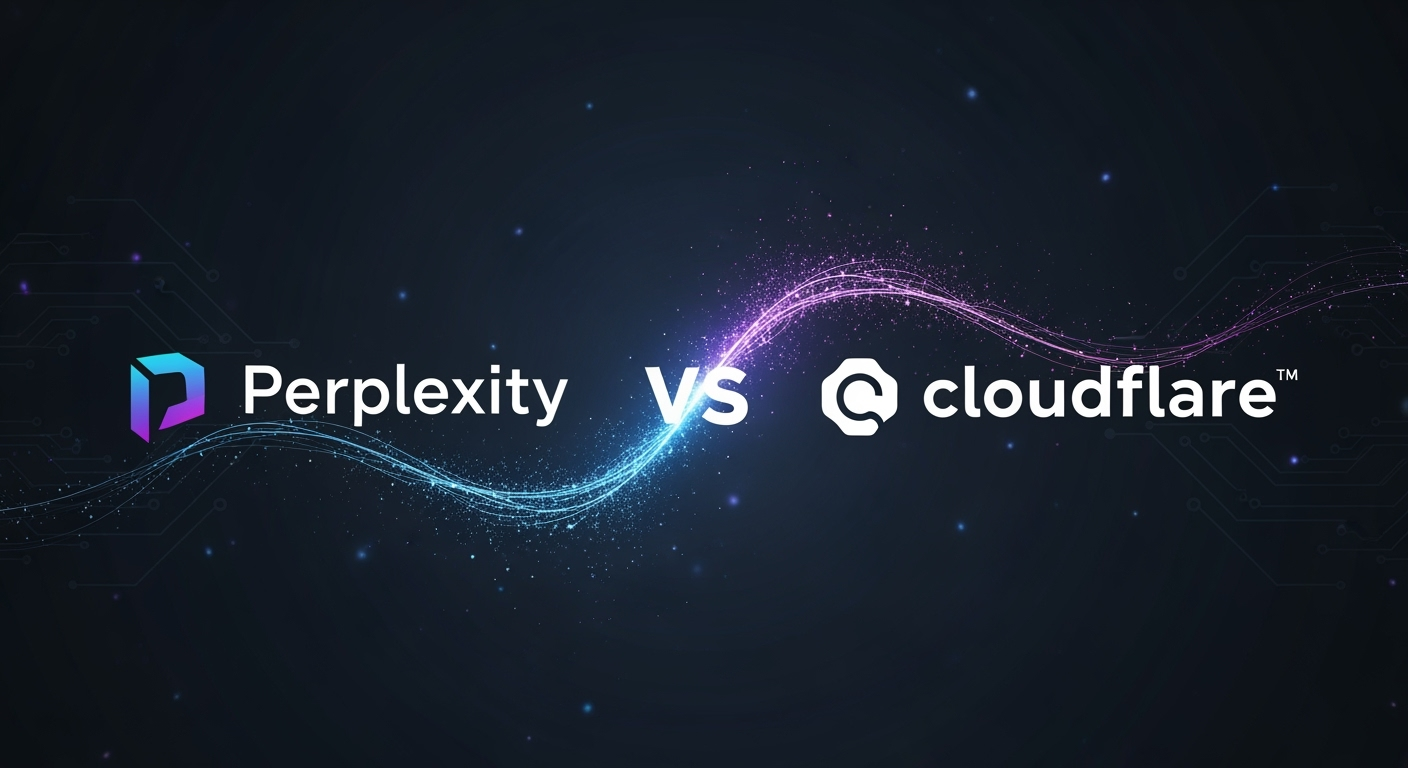Cloudflare vs. Perplexity: The Debate Over AI Agents and Web Scraping

Cloudflare vs. Perplexity: The Debate Over AI Agents and Web Scraping
Recently, a heated debate has emerged in the tech community following accusations by Cloudflare against AI-powered search engine Perplexity. Cloudflare, known for its web security and anti-bot services, claimed that Perplexity was stealthily scraping websites and bypassing explicit crawling restrictions. This incident has sparked a broader conversation about the role of AI agents on the web and the future of online content access.
What Happened Between Cloudflare and Perplexity?
Cloudflare set up a new website with a unique domain, implemented a robots.txt file to block Perplexity’s known crawlers, and then queried Perplexity about the site’s content. Despite these blocks, Perplexity was able to provide information about the website. Cloudflare researchers discovered that Perplexity used a generic browser user agent, mimicking Google Chrome on macOS, to access the content when its dedicated crawler was blocked.
Cloudflare’s CEO, Matthew Prince, publicly criticized these actions, comparing some AI companies to malicious hackers and advocating for stronger measures to block such behavior.
The Core Controversy: AI Agents vs. Human Users
The heart of the debate centers on whether AI agents, when accessing websites on behalf of users, should be treated like bots or like human visitors. Supporters of Perplexity argue that if a user instructs an AI assistant to visit a website, it’s similar to the user visiting the site themselves. Critics, including Cloudflare, counter that ignoring site owner restrictions undermines both web standards and website business models.
- Should an AI agent acting on a user's command be considered a legitimate visitor?
- Or does bypassing
robots.txtand other controls make it a rogue bot?
Perplexity’s Response
Perplexity has denied that its own bots were responsible, suggesting the behavior came from a third-party service it uses. The company published a blog post defending its practices, emphasizing that the distinction between automated crawling and user-driven fetching is not just technical, but a matter of access rights on the open web.
Perplexity’s stance has found support across social media and forums. Many users argue that the real issue is about user empowerment versus strict gatekeeping by website owners.
The Bigger Picture: AI, Bots, and the Future of the Web
This clash comes at a time when bot traffic is surging. Recent reports indicate that, for the first time, bots now account for more than half of all internet traffic, with a significant portion driven by large language models (LLMs). Malicious bots represent about 37% of all online activity, encompassing scraping, credential stuffing, and more.
Traditionally, websites have relied on tools like robots.txt and CAPTCHAs to control bot access. Search engines like Google are incentivized to respect these restrictions because they drive valuable referral traffic. However, AI-powered agents are changing the dynamic. As users turn to AI assistants for everything from research to shopping, the question arises: should websites block these agents and risk losing potential business, or adapt and find new ways to work with them?
Industry Standards and New Solutions
Cloudflare points out that companies like OpenAI adhere to best practices, respecting robots.txt and adopting emerging standards like Web Bot Auth—a protocol designed to cryptographically verify the identity of AI agents. The hope is that such standards can help distinguish between legitimate AI assistants and harmful bots.
What’s Next?
The debate is far from settled. As AI agents become more prevalent, the line between helpful automation and unwanted scraping will only blur further. Businesses, developers, and policymakers will need to collaborate on new frameworks that balance user empowerment, content creator rights, and the health of the web ecosystem.
References
- Perplexity accused of scraping websites that explicitly blocked AI scraping
- Matthew Prince on X
- Perplexity defense on X
- Perplexity defense on Hacker News
- Perplexity’s official blog response
- Cloudflare’s research post
- Web Bot Auth standard
- Imperva 2025 Bad Bot Report
- Gartner prediction on search volume
- X user debate
- Agentic browsing discussion on X





